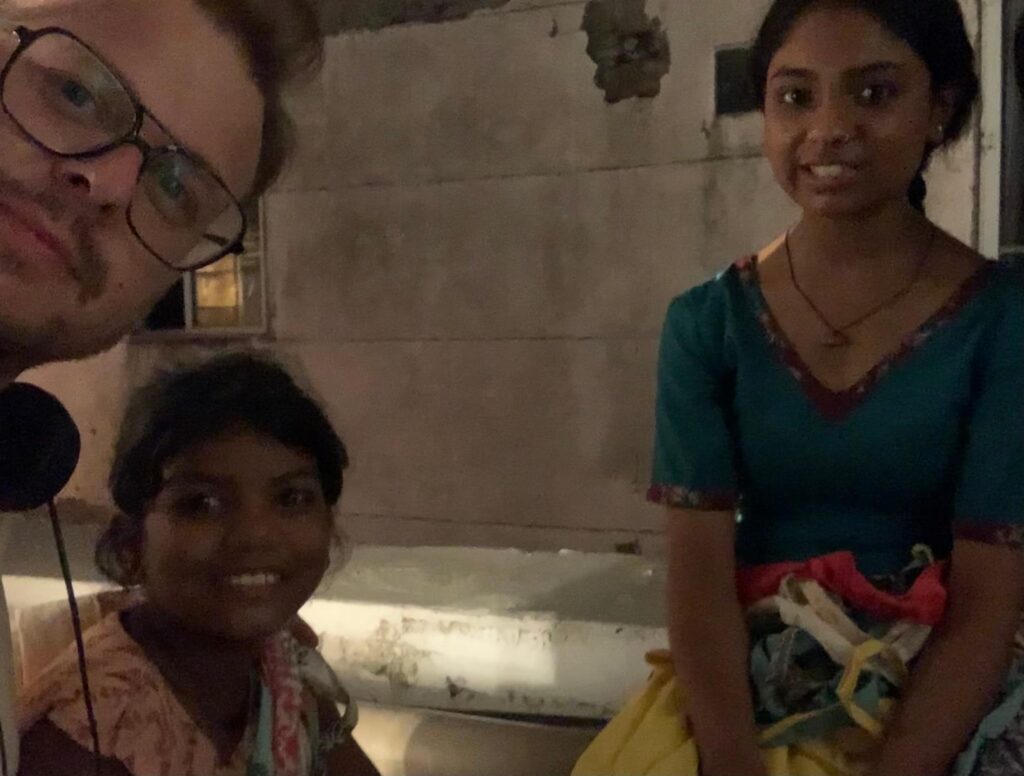
Two months ago when American academic and filmmaker Adam J Graves’ India-set short Anuja was named an Oscar nominee, the 23-minute film quickly garnered a lot of attention globally. Now streaming on Netflix, the film was competing in the ‘Best Live Action Short Film’ category at the 97th Academy Awards. It’s a collaborative project between Adam and his wife and co-producer Suchitra Mattai, who is a Guyana-born multidisciplinary artist of Indian descent. The film spotlights a slew of social perils – generational poverty, child labour, gender discrimination and the lack of accessible education and orphan care. That said, Anuja is not a ‘dark film’ per se. In an interview when the couple were asked about the reason they picked ‘young factory workers’ as the focal point of the film, they said even though the initial idea was to focus on an ‘issue of significance’, meeting the lead actors – Sajda Pathan and Ananya Shanbhag – made them realise not to lose sight of people’s immense capacity to creating joy under difficult circumstances.
Sajda plays the titular character in the film – a nine-year-old maths prodigy, slogging away with her elder sister Palak (Ananya) at a sweatshop in Delhi, churning out cotton bags. The two girls share a poorly lit room in a drab slum locality in the capital city of India. Then, there comes an opportunity that could potentially change their lives forever. Anuja’s former teacher Mishra (Gulshan Walia) meets with their paan-chewing manager Verma (Nagesh Bhonsle) on the factory floor, insisting that the little girl is allowed to appear for an exam the following week, which could earn her a scholarship to a coveted boarding school. Mishra even threatens to report him to the authorities if he dissuades her from continuing her studies. Verma, however, shrugs off abuse and exploitation claims, asserting that every worker at the manufacturing unit is above the legal age for employment.
Anuja is brilliant at mental arithmetic, and Palak wants her to show up at the exam hall come what may. To save up a little more money, Palak – who aspires to become a sewing machine operator – stitches bags with leftover fabric, which the siblings later sell on the streets. Written and directed by Adam, this short film exposes the grim realities of worker exploitation in clothing supply chains, particularly the plight of women and girls in garment factories, as they toil for long hours every day without a break. How Anuja finds herself at a crossroads, deciding on Palak and her own future, forms the crux of the story. The short film is co-produced by Mindy Kaling, Guneet Monga Kapoor and Priyanka Chopra Jonas, among others.
Supported by New Delhi-based Salaam Baalak Trust (SBT), Anuja may remind you of films like Salaam Bombay! and Dharavi. It’s an inspiring tale of sisterhood against exploitation that leaves you wanting for more. Sajda’s salt-of-the-earth performance will win your heart in every frame she appears. She expresses every emotion with a certain conviction and ingenuity that help drive the narrative. Ananya, too, impresses as a protective older sister and Anuja’s only reference to their mother. Adam uses the themes of hope, empathy and fortitude to narrate a heart-wrenching story. Although the storyline and characterisation could have been fleshed out a bit more, the movie brilliantly dovetails the playful moments between the two sisters with their moments of despair. The scene in which the two girls are seen enjoying a packet of jalebi on the terrace is at once stirring and heartbreaking.

One may term Anuja as any other story about India’s many street children. But this compelling coming-of-age drama does make an honest attempt to offer a new perspective of their predicament, possibly a new gaze. Akash Raje’s cinematography and Fabrizio Mancinelli’s thumping music score add more depth to this moving portrayal of labour and love. Watch the film as it raises concern over a serious social issue that has become too commonplace for us to take notice of. Sajda Pathan and Ananya Shanbhag’s spellbinding, raw acts as they navigate the dingy lanes of a slum to reroute their future make Anuja worth an Oscar nomination.














